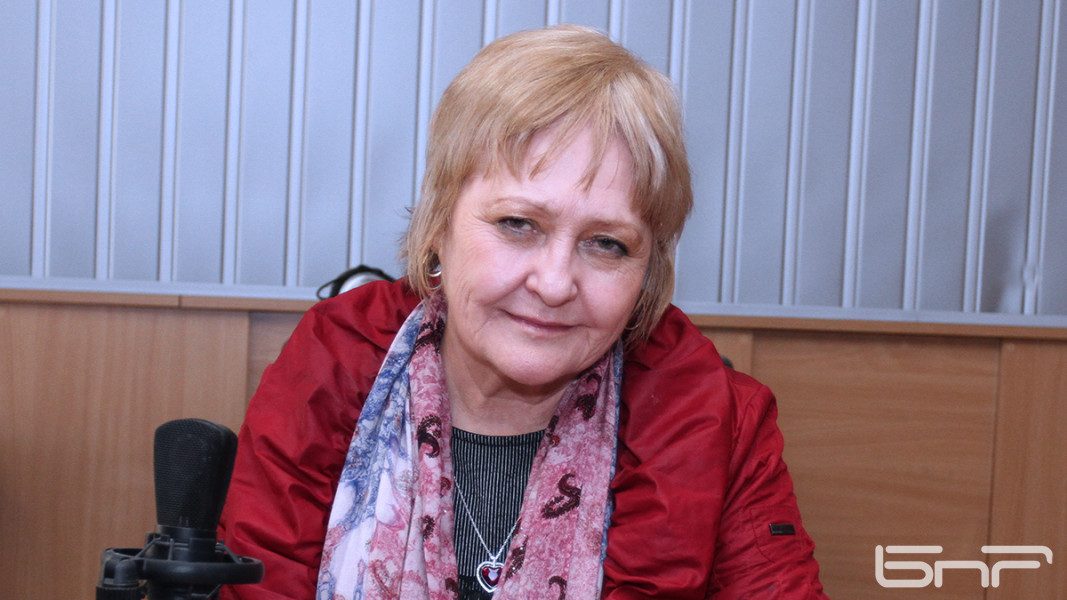Two in three Bulgarians are overweight. With regard to this tendency, Bulgaria is running ahead of European and world obesity trends, indicate the latest data of the World Health Organization on occasion of the World Obesity Day marked on March 4. More than 61% of Bulgarians are overweight. Obesity is a chronic disease associated with excessive fat accumulation that presents a risk to health. It affects negatively peoples’ health and reduces life expectancy. 13.6% of the Bulgarian children are overweight. Moreover, 17.1% of the boys aged 5 to 9 are overweight and 10.2% of the girls at this age are overweight.
The body mass index is the main indicator used to define overweight and obesity. Bulgarians have put on body weight over the past year, because many people stayed at home for a long time and did not exercise enough. The negative results are visible in people who work and study online. In the beginning of the lockdown, when contacts between people were minimized, we noticed that people were gaining weight. Children and adolescents were also putting on weight amidst a period of depression and anxiety. All these factors contribute to the increase of body weight, said public health nutritionist Professor Donka Baikova:
 “Some people found a way to shift to a healthier nutrition. Moreover, they increased their physical exercises, although they had to stay and work at home. Fortunately, the human body can quickly get rid of the kilograms gained over a very short period of time, because the fat cells need more time to remember an unhealthy diet. However, some Bulgarians left this problem for the post-Covid-19 period. However, the coronavirus pandemic is not likely to end soon and experts recommend that people do not delay the fight against excess weight and immediately adopt measures to lose weight. Overweight and obese people are at greater risk for severe Covid-19.”
“Some people found a way to shift to a healthier nutrition. Moreover, they increased their physical exercises, although they had to stay and work at home. Fortunately, the human body can quickly get rid of the kilograms gained over a very short period of time, because the fat cells need more time to remember an unhealthy diet. However, some Bulgarians left this problem for the post-Covid-19 period. However, the coronavirus pandemic is not likely to end soon and experts recommend that people do not delay the fight against excess weight and immediately adopt measures to lose weight. Overweight and obese people are at greater risk for severe Covid-19.”
 This is so, because fat is stored up around the organs of overweight people. Fat is wrapped around their heart and infiltrated into their liver. Their blood vessels get clogged with fat. The skeletal system cannot endure excess weight. Our optimal weigh is our height in centimeters minus 100, said Professor Baikova and called on the people who do not fall into this category to take immediate measures.
This is so, because fat is stored up around the organs of overweight people. Fat is wrapped around their heart and infiltrated into their liver. Their blood vessels get clogged with fat. The skeletal system cannot endure excess weight. Our optimal weigh is our height in centimeters minus 100, said Professor Baikova and called on the people who do not fall into this category to take immediate measures.
 “They must gradually shift towards a low fat nutrition and increase physical exercise. The healthy weekly menu includes three meat meals, two portions of fish and two meatless dishes, in which we can add daily products or an egg. When we do not consume meat, our menu must always include potatoes, rice, corn, cereals and beans. People should eat high-carb foods such as rye bread, oatflakes and linseed at breakfast. However, they should continue their physical exercise.”
“They must gradually shift towards a low fat nutrition and increase physical exercise. The healthy weekly menu includes three meat meals, two portions of fish and two meatless dishes, in which we can add daily products or an egg. When we do not consume meat, our menu must always include potatoes, rice, corn, cereals and beans. People should eat high-carb foods such as rye bread, oatflakes and linseed at breakfast. However, they should continue their physical exercise.”
English version: Kostadin Atanasov
Photos: Pixabay, archive, Ani Petrova
NATO tests new 'no U.S.' mission model in Balkans NATO is testing its ability to deploy rapidly across Eastern Europe - without direct US support - as Washington shifts its approach to European defence and the war in Ukraine, the Associated Press..
Love blooms with renewed vigour every year on 14 February! Valentine's Day is increasingly being celebrated in Bulgaria as a holiday that inspires lovers to share beautiful moments together. Traditions include the exchange of cards, gifts and romantic..
From February 14 to 16, an event under the motto "Love and Wine" will allow Sofia residents and guests of the city to combine the Bulgarian holiday of wine Trifon Zarezan with Valentine's Day. It will be held on the pedestrian zone..
On February 16, Radio Bulgaria celebrates its 89th anniversary . Throughout these years, our multilingual media has been not only a channel of information,..
At various times in its existence, the BNR's Directorate of Foreign Language Broadcasts, now known as Radio Bulgaria, the multimedia multilingual platform..
February 16, 2025 marks the 127th anniversary of the first bulletin of the Bulgarian Telegraph Agency, signed by its first director Oscar Iskander. The..

+359 2 9336 661
